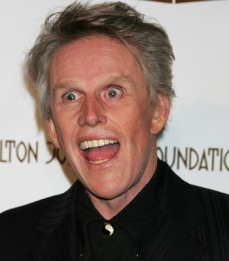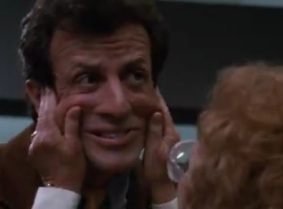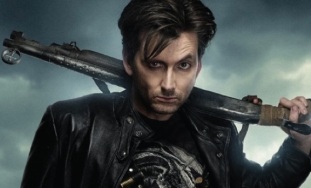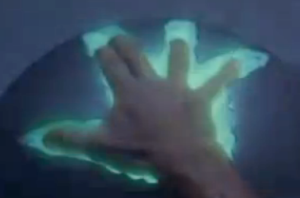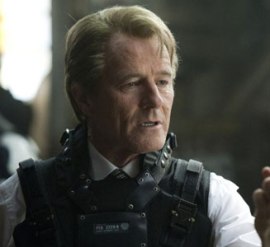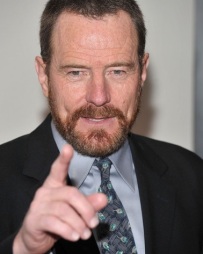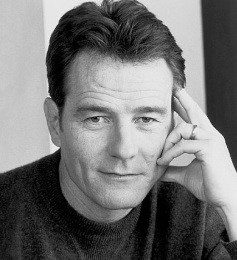The problem with the first Expendables movie is its premise is inconsistent with what we actually got. It’s funny, action-packed, and very entertaining overall, but it simply doesn’t feel big enough. In other words, it’s not “80s big”. The Expendables was intended to be a throwback to the action blockbusters of the mid-to-late 1980s that feature impossibly excessive action sequences with insane amounts of carnage, all topped off with a few one-liners to kill the tension. Yes they’re implausible and corny, but that’s what makes them so much fun to watch. You’d think a film that features Sylvester Stallone, Dolph Lundgren, and Bruce Willis in an oversimplified mercenary story that practically screams “high body count” would inevitably cause you to leave the cinema with your eyes bugged out and hair blown back due to the sheer epicness of what you just witnessed.
Bingo!
But no. Unfortunately, The Expendables feels more like a gritty modern-era action flick that takes itself way too seriously considering its purpose. It’s a good film, but not what we had expected. When The Expendables 2 was announced, it felt like the sequel that no one wanted, but got stuck with anyways. Then I saw it.
“Holy tap-dancing cows!” is a phrase that comes to mind. The Expendables 2 is a dramatic change in gears, to say the least. Everything it does well in its predecessor is simply made bigger and everything else is changed to ensure you couldn’t possibly take this movie seriously at all, but still love every second of it. The cast has grown (introducing other 80s stars Chuck Norris and Jean-Claude Van Damme, and giving larger roles to Willis and Arnold Schwarzenegger), the action is insane to the point of parody, the arsenal of weapons and vehicles is jaw-dropping, and the whole thing is caked in a thick layer of 80s action movie tropes. To name a few: the dialogue is cheesy and riddled with one-liners, everything explodes, the bad guys have the aim of drunk Stormtroopers while the heroes can fire directly into the sky and still mow down a row of enemies, and the word “subtlety” is nowhere to be found. The antagonist is actually named “Villain”, for crying out loud.
This was his concept art.
It’s what the first movie was supposed to be and succeeds across the board in this sense. For a movie that’s so undeniably 80s, however, the burning question is why release a film like this today? It’s one thing to pay tribute to a previous era of film history (such as Scorsese’s Hugo), but another to actually include the stars of that era. As I’ve already gone over in greater length in my review of Total Recall, the action movies of the mid-to-late 80s were supposed to showcase a tough America: one that could not only stand up to then-pressing threats such as the Soviet Union or the aftermath of Vietnam, but eliminate them completely. People like Stallone and Schwarzenegger were America’s “hard bodies”, who defined the American male and his seemingly non-existent limits of hypermasculine power. When the Cold War ended and Reagan left the White House, these films naturally stopped serving a purpose and went away while America’s onscreen saviours would go on to do movies like Batman & Robin and Stop! Or My Mom Will Shoot.
America!
The Expendables 2 is a fascinating film to read politically. While it carries over the stars and tropes of 80s action, it doesn’t carry over its themes. America’s Cold War heroes have fundamentally changed. They’ve aged considerably and are more aware of their vulnerabilities, but more importantly, they’re acting independent of the US Government. They’ve gone from saviours to a team of mercenaries-for-hire, who often find themselves clashing with America (here embodied by Willis, reprising his role as CIA Agent Church) or acting in defiance of it. There’s an especially telling scene where Stallone introduces the team as “Americans” and Jason Statham turns to him and says in his thickest, most Stathamiest accent, “Since when?” Even when the Expendables and the Government unite towards the end of the film, Stallone makes it crystal clear that his team is still calling the shots. The Expendables 2 is significant because it shows us that America’s hard bodies are still active, but find themselves in a world where they’re not wanted. As a result, they no longer seek to prove anything about America so much as they simply want to prove something to themselves. They’ve become (dare I say?) expendable.
I give the film 3.5/5.

